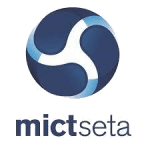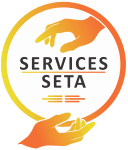Learnerships represent a cornerstone of South Africa’s efforts to address unemployment, skills shortages, and economic inequality. These structured learning programs combine theoretical knowledge with practical workplace experience, offering participants a pathway to acquiring accredited qualifications and gaining valuable skills. However, securing funding for learnerships can be a daunting task for organizations seeking to implement these programs. In this article, we will delve deeper into the challenges and opportunities surrounding funding for learnerships in South Africa, exploring various strategies and avenues available to navigate this complex landscape.
Understanding the Importance of Learnerships
Learnerships play a crucial role in addressing the dual challenges of youth unemployment and skills development in South Africa. By providing structured training and work experience, learnerships bridge the gap between education and employment, equipping participants with the skills and knowledge needed to succeed in the workplace. Additionally, learnerships contribute to building a skilled workforce that drives economic growth and promotes social inclusion. The significance of learnerships extends beyond individual development to societal advancement, making them an integral component of South Africa’s economic and social fabric.
Funding for Employers
For employers seeking funding to implement learnership programs, several avenues can be explored:
Government Funding Opportunities
Government departments and entities, such as the Department of Higher Education and Training (DHET) and Sector Education and Training Authorities (SETAs), offer funding support for learnership programs. Employers can apply for funding through these channels to cover the costs associated with training and stipends for learners. However, navigating the application process and meeting eligibility criteria can be complex, requiring careful planning and coordination.
Tax Incentives
In addition to direct funding, employers may qualify for tax incentives or rebates through the Skills Development Levy (SDL) system. By contributing to the SDL and investing in skills development initiatives, employers can claim tax benefits, which can help offset the costs of implementing learnership programs. Understanding the intricacies of tax incentives and compliance requirements is essential for maximizing the financial benefits associated with skills development initiatives.

Private Sector Partnerships
Collaborating with private sector partners can provide additional funding opportunities for learnerships. Many companies recognize the importance of investing in skills development and may be willing to contribute financially or provide in-kind support for learnership initiatives. Establishing mutually beneficial partnerships with private sector organizations requires effective communication, negotiation, and alignment of objectives to ensure the successful implementation of learnership programs.
Funding for Learners
For individuals seeking funding to participate in learnership programs, the following steps can be taken:
Research Learnership Opportunities
Explore learnership opportunities offered by government departments, private companies, nonprofit organizations, and educational institutions. Identify programs that align with your interests, career goals, and skills development needs. Conducting thorough research and networking within the industry can help uncover hidden opportunities and increase the chances of securing funding for learnerships.
Understand Funding Options
Familiarize yourself with the various funding options available, including government initiatives, scholarships, bursaries, student loans, and employer sponsorship. Determine eligibility criteria and requirements for each funding source to assess suitability and compatibility with your personal circumstances and aspirations. Seeking guidance from career counselors or educational advisors can provide valuable insights and assistance in navigating the complexities of funding applications.
Prepare Strong Applications
Once you have identified suitable learnership opportunities and funding options, prepare well-articulated applications that showcase your motivation, qualifications, and alignment with the objectives of the learnership program. Tailor your applications to the specific requirements of each funding provider and provide any requested supporting documentation to strengthen your case. Highlighting your potential contributions and commitment to learning and professional development can significantly enhance your chances of securing funding for learnerships.
Conclusion
Securing funding for learnerships in South Africa requires proactive efforts from both employers and individuals. By exploring government funding opportunities, leveraging private sector partnerships, and understanding alternative funding sources, employers can finance the implementation of learnership programs to address skills shortages and promote economic growth. Similarly, individuals can access funding through government initiatives, scholarships, and employer sponsorships to participate in learnership programs that enhance their skills and employability. Through collaboration, strategic planning, and perseverance, stakeholders can harness the power of learnerships to address unemployment, promote skills development, and drive economic growth in South Africa. As we continue to navigate the evolving landscape of skills development, let us seize the opportunities presented by learnerships to create a brighter future for individuals and communities across the nation.



